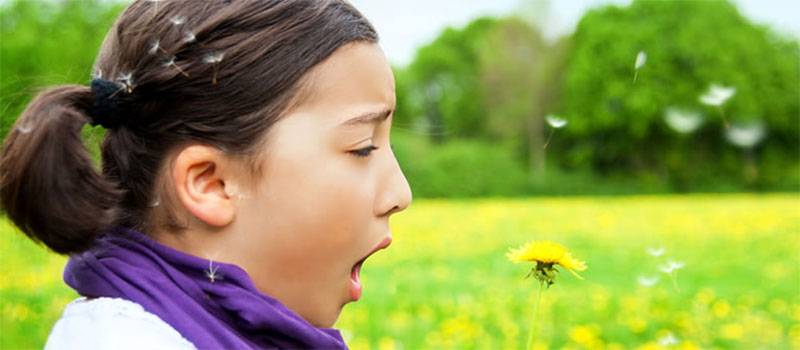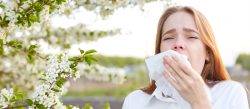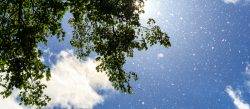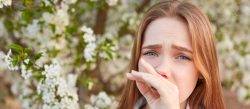How do Antihistamines Work?
What are antihistamines? Antihistamines are used by allergy sufferers to relieve allergy symptoms from seasonal and year-round allergies. What types of…
Read MorePublished on January 16, 2024

For kids dealing with allergies, there’s a wide range of triggers — both inside and outside the home — that can cause uncomfortable symptoms. Understanding children’s allergies and how to alleviate them can go a long way to helping your child get back to playing, laughing, and enjoying themselves.
Allergies happen when a body detects an allergen and produces an abnormal immune response to something that is typically harmless to most people. Allergies don’t just occur in adults, but children too.
When a child with an allergy is exposed to that allergen, their immune system over-corrects and tries to fight off the invading allergen with an immune response, causing certain chemicals (like histamine) to be released into the bloodstream as a defence against this “invader”.1 It’s this release of chemicals which causes allergy symptoms in children.1
As soon as you notice your child is suffering allergic symptoms, see a paediatrician or allergist to get a diagnosis. A doctor will be able to run tests to see if your child has a sensitivity to one or more of the most common allergens. Look out for these common symptoms of allergies.2
• Sneezing
• Itchy nose and/or throat
• Nasal congestion
• Itchy, watery, and/or red eyes
You may see multiple symptoms or just one.2 In any case, the sooner you seek medical guidance, the sooner you can get your child on the path to relief.
Eliminating allergy triggers within the home can help to make things a little less sneezy. Allergens are practically everywhere. So, the best way to get rid of symptoms is to get rid of the triggers. Here are the most common places to find them.3
• Damp and humid areas
• Indoor plants
• Pets
• Pillows and bedding
Plush furniture
• Plush toys
• Unsealed mattresses
• Wall-to-wall carpet
Obviously, adding a bunch of new cleaning chores may not be practical. But you can use this list as a place to start:
Control dust mites3
• Use low-pile carpets, washable rugs, hardwood, linoleum, or tile
• Put sealed, allergen-resistant covers on pillows and mattresses
• Wash bedding, pillows, and stuffed toys in water that’s at least 130°F; dry them in a hot dryer
Minimize pet dander3
• Before getting a pet, ask an allergist to determine if your kids are allergic
• Keep pets out of the bedroom
• Wash and change pet beds and toys often
Keep the air clean3
• Increase the flow of outdoor air
• Use air cleaners with certified allergy and asthma friendly filters
• Vacuum frequently with certified allergy and asthma friendly filters
Common triggers of outdoor allergies in kids1 can be pollen from trees, grass, and weeds. Many allergens produce similar symptoms and will benefit from the same efforts at relieving them.
Treatment for allergies in children will depend on the symptoms they have, their age, and how severe the allergy is. As well as avoiding the triggers for the allergy, mild indoor and outdoor allergies can also be treated with antihistamine medications.5
When looking for an over the counter treatment for your child’s allergies, experts recommend to avoid oral antihistamines for children that can cause drowsiness, instead opting for an antihistamine that’s been designed to be safe and non-drowsy in children.6
[1] Kids and Allergies (for Parents) – Nemours KidsHealth. (2022, January 1). Retrieved from https://kidshealth.org/en/parents/allergy.html
[2] Jordan C. Smallwood, MD, Reviewer. Seasonal Allergies (Hay Fever), (2016, October) KidsHealth (kidshealth.org), Retrieved from https://kidshealth.org/en/parents/seasonal-allergies.html [1] Asthma and Allergy Foundation of America, Editors. Control Allergens to Improve Indoor Air Quality, Reviewed by Medical Scientific Council, 2015. Retrieved from https://aafa.org/allergies/prevent-allergies/control-indoor-allergens/
[3] Asthma and Allergy Foundation of America, Editors. Control Allergens to Improve Indoor Air Quality, Reviewed by Medical Scientific Council, 2015. Retrieved from https://aafa.org/allergies/prevent-allergies/control-indoor-allergens/
[4] Andrew Moore, MD, Reviewed. Outdoor Allergens, American Academy of Allergy, Asthma & Immunology (aaaai.org), September 28, 2020. Retrieved from https://www.aaaai.org/Tools-for-the-Public/Conditions-Library/Allergies/Outdoor-allergens-TTR
[5] Stanford Medicine Children’s Health. Treatment for a Child’s Allergy to Dust or Pollen. https://www.stanfordchildrens.org/en/topic/default?id=treatment-for-a-childs-allergy-90-P01668
[6] How to Treat Your Child’s Seasonal Allergies, According to Our Pediatric Allergists. (2023, March 23). Retrieved from https://nyulangone.org/news/how-treat-your-childs-seasonal-allergies-according-our-pediatric-allergists
Learn about which Telfast product may be appropriate for you.
SEE THE PRODUCTS HERECHCANZ.CFEX.18.04.0413

What are antihistamines? Antihistamines are used by allergy sufferers to relieve allergy symptoms from seasonal and year-round allergies. What types of…
Read More
What are allergies? Allergy symptoms occur when your body’s immune system overreacts to something that is usually harmless for most people,…
Read More
Acute: Describes a disease or condition with a rapid onset, intense or severe symptoms and of brief duration. Allergen: Any…
Read MoreIf you’d like to know which product might be suitable for your needs, or if you have questions relating to any of our products, please fill in the form below. We’d love to hear from you. To speak with a team member or report an adverse event, please call 1800 818 806 within Australia.
Thank you for your submission. A representative will be in contact shortly.
Submit